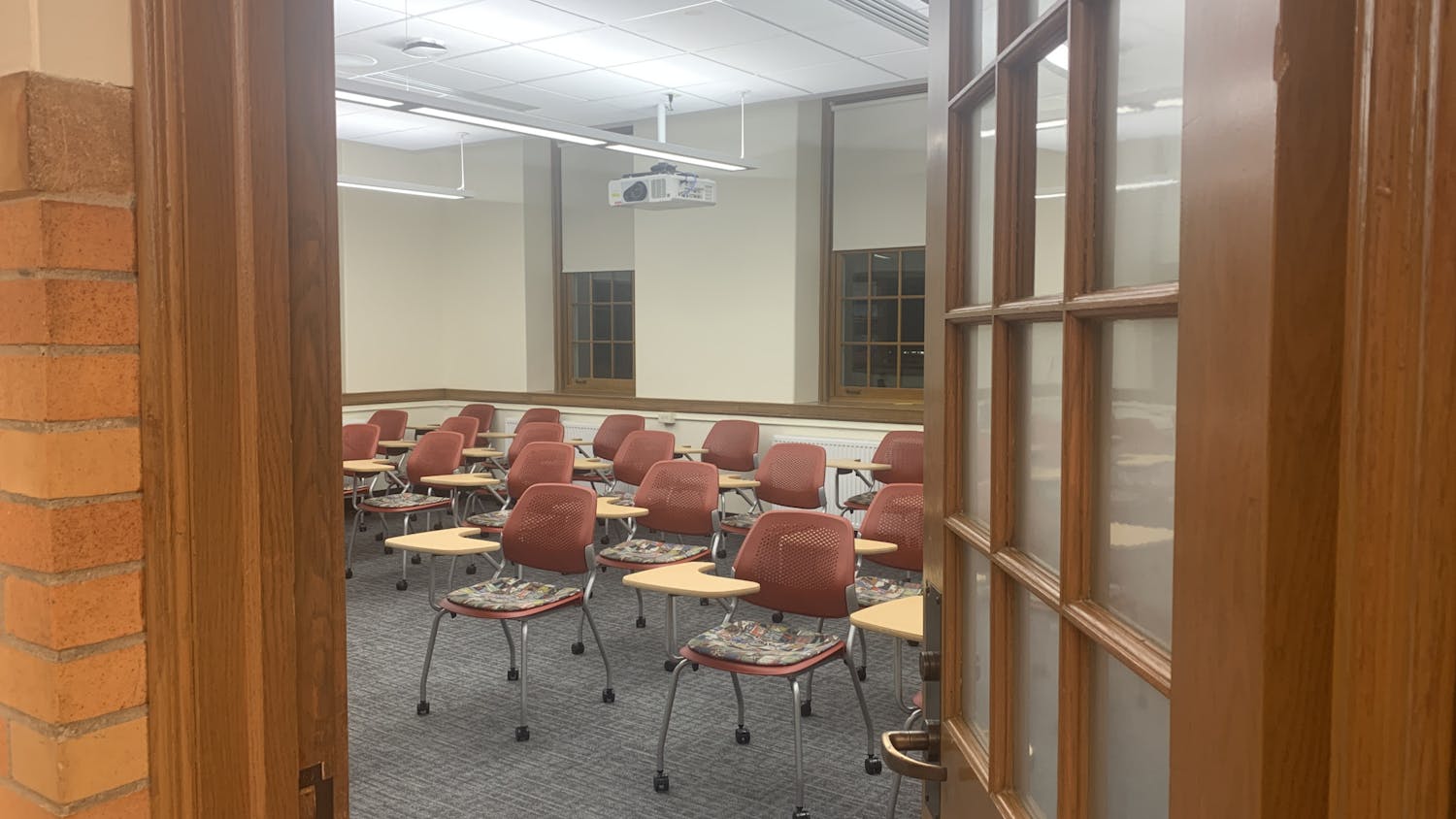Of the 1,112 students surveyed by this year’s Zeitgeist, two-thirds admitted to breaking the Honor Code, in which students affirm that they have not given nor received unauthorized aid on a given assignment. The vast majority of cases involve using aids such as Google Translate, Sparknotes or calculators on assignments where their use is not allowed. The second most common violation was cheating on exams, and the third was using ChatGPT and other unauthorized AI tools.
The Honor Code as it currently stands clearly does not effectively deter students from cheating, nor does it inspire commitment to the ideals it is meant to represent such as integrity and trust. In light of the upcoming review of the Honor Code next year, we want to embrace the spirit of this year’s Zeitgeist — recalibrate — and consider recalibrating our school’s conception of academic integrity.
In the spirit of this theme, we feel that this is a moment that calls for the rethinking of the Honor Code. Zeitgeist statistics from previous years and anecdotes from board members ultimately reveal the inadequacies of the honor code as it currently exists.
There are many possible reasons why the Honor Code isn’t working: the immense pressure to keep afloat academically and the asynchronous teaching made cheating easier, just to name a few. Regardless of each individual’s intention or reasons, there is clearly a culture that prevents the construction of mutual trust between professors and students.
The question then becomes, how can we fix it? Although we do not have all the answers, we hope that by sharing some observations and suggestions, we can begin considering recalibrating the Honor Code ahead of next year’s review process.
Cheating may also arise from the vague parameters of the Honor Code, which lead different departments to implement it differently. For example, although proctored exams are explicitly prohibited in the Honor Code, the Economics department is an exception in that professors are permitted to proctor exams. The department is so concerned about cheating that they disallow the use of personal calculators on exams, and distribute a department set for students to use. In theory, the role of the Honor Code is to facilitate a sense of mutual trust between students and professors. But the Economics department’s rules demonstrate how the system of trust between students and professors — a system that exists to provide both with flexibility — has completely broken down.
Finally, it may simply be the case that students don’t believe in the Honor Code. Some board members reported attending high schools with far stricter honor codes than Middlebury, and noted that they were also adhered to far more strictly than at Middlebury. This supports the notion that if students don’t believe in the Honor Code, they won’t follow it. Consequently, other students may choose not to follow it if they think others aren’t following it. This creates the culture and cycle of cheating currently plaguing academics at Middlebury, one that becomes a self-fulfilling prophecy.
For starters, we may need to reevaluate what we consider an Honor Code violation. The term “unauthorized aid” may prove confusing to some students who encounter the Honor Code system for the first time. A possible method for evaluating the Honor Code may be asking whether or not a particular type of violation is ultimately helping or harming students’ learning. We should actively think about the Honor Code in a changing context: Professors still hold diverse opinions on incorporating ChatGPT, so perhaps it is premature to consider AI chatbots unauthorized aid across the board.
Another possible solution would be to make extensions more easily accessible across all academic departments. Although most professors are generous in their extension policies, some students may be disincentivized to explore this option because of the cumbersome administrative hoops they must jump through to attain one. It's also possible some students feel a stigma around extensions, and eliminating administrative barriers to make it a more casual process may help to normalize seeking help in this form. Simply put, students need to give professors a reason to trust them, and professors need to fulfill their promises of trust. The Honor Code is a two-way street, and it can only be rebuilt with work from each side.
Additionally, we should consider more widely implementing academic assessments that include corrections and revisions, so that students have the opportunity to revisit the material they missed and learn from mistakes. One student on the board noted they felt they had learned the most they ever had in a Middlebury class that was structured this way because it allowed them to focus on the course content without obsessing over the letter grade.
With the aforementioned review of the Honor Code in mind, we think it is important to note that we do think that this policy and its principles have an important place at Middlebury. One board member reported being granted the opportunity to postpone an exam since they were sick. Although the professor didn’t have time to write a new version — their usual policy — they still allowed the student to postpone despite having already released the answer key. Such trust represents the Honor Code at its best.
Additionally, although the vagueness of the Honor Code may result in less strict adherence, we also feel that this quality is in the spirit of mutual trust between professors and students, and is an honorable ideal to aspire to; one that we hope to achieve at Middlebury.
The Honor Code is only effective when we all have a reason to believe that academic integrity and honesty should be a part of our culture at Middlebury. If we expect flexible policies and honorable behavior in the future, we need to recognize the current failure of our Honor Code system and strive to create a culture built on mutual trust and honesty at Middlebury.




